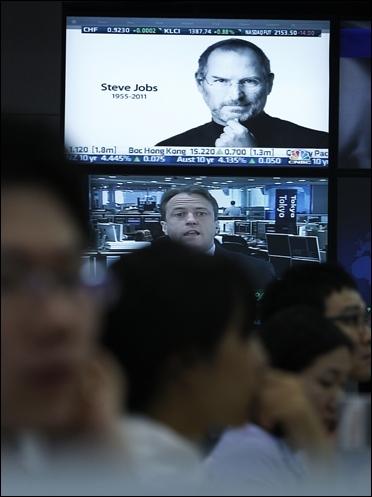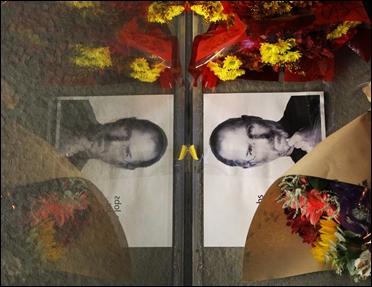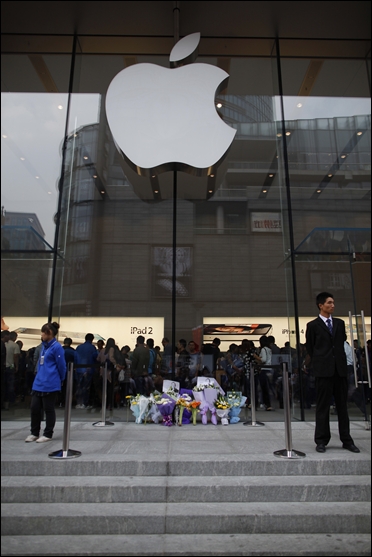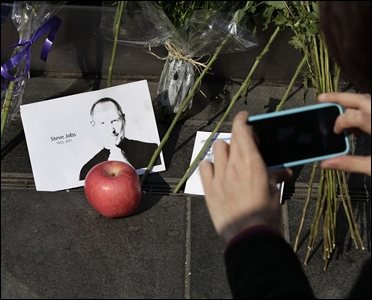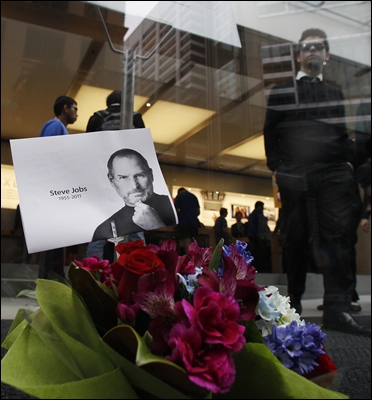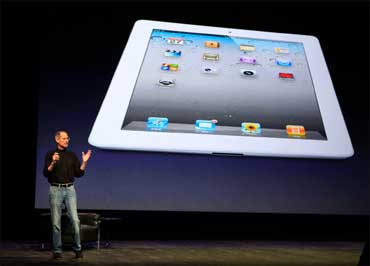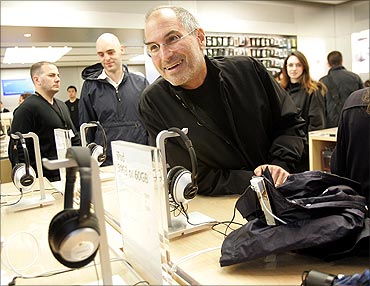 | « Back to article | Print this article |
Steve Jobs: The monk who left India to make i-Products
"Three apples have changed the world. One seduced Eve, second awakened Newton, the third one was in the hands of Jobs."
This was one of the most widely circulated messages doing the rounds of social networking sites like Twitter and Facebook and elsewhere on internet after the untimely demise of Steve Jobs, the visionary entrepreneur and the force behind the US-based global technology giant Apple.
Click NEXT to read more...
Steve Jobs: The monk who left India to make i-Products
Much before embarking on the path of giving the world iconic products like Mac computers, iPod music players, iPhone mobile phones and iPad tablet PCs, this cult figure of the world of technology came to India in early 70s in search of enlightenment or 'nirvana' and went back unsatisfied.
He found India far poorer than he had imagined at that time and, ironically, years later in mid-2000s, when he thought of setting up a facility for Apple's Mac computers, India appeared to be much less cost-effective to do business.
Click NEXT to read more...
Steve Jobs: The monk who left India to make i-Products
But, it was his unsatisfactory India visit of early 70s that could have been one of the major reasons for Jobs' focus on the world of technology and eventually the setting up of the company called Apple.
His biography, titled 'The Little Kingdom -- The Private Story of Apple Computer' quotes Jobs as saying that "It was one of the first times that I started to realise that maybe Thomas Edison did a lot more to improve the world than Karl Marx and Neem Kairolie Baba put together."
Click NEXT to read more...
Steve Jobs: The monk who left India to make i-Products
Neem Karori Baba was the guru that Jobs, then 18, visited in India along with his college friend Dan Kottke. The American duo had come to India after they dropped out of college and Kottke eventually joined Jobs as the first employee of Apple.
"The hot, uncomfortable summer made Jobs question many of the illusions he had nursed about India. He found India far poorer than he had imagined and was struck by the incongruity between the country's condition and its airs of holiness," author Michael Moritz wrote in Jobs' biography.
Click NEXT to read more...
Steve Jobs: The monk who left India to make i-Products
The book quoted Jobs as saying: "We werent going to find a place where we could go for a month to be enlightened" and said that by the time he returned to California "he was thinner, thanks to a bout of dysentery, had closely cropped hair, and was dressed in an Indian attire..."
Years later in 2006, there were talks about Apple mulling over a 3,000-strong workforce centre in Bangalore to support its Mac and other products and it was said that the company even hired an initial team of 30 people.
Click NEXT to read more...
Steve Jobs: The monk who left India to make i-Products
But, the plans did not fructify and reports said that the company did not find India as cost-effective as it had thought it to be.
Ironically, Jobs died on a day when Indian government unveiled its own answer to iPad, with a price tag much lower than that of the iconic brand, in the form of Aakash, the world's cheapest tablet PC.
The market gets swarmed with a number of rival products whenever Apple launches a new one and this has been the case of digital music player iPod, touch-screen mobile device iPhone and touch-screen tablet PC iPad.
Click NEXT to read more...
Steve Jobs: The monk who left India to make i-Products
Invariably, the rival products are priced much cheaper than Apple's and in places like India a comparatively costlier price tag has always come in the way of their market-leading positions.
The cost factor notwithstanding, the products that Jobs brought to this world achieved unmatched fashion value and cult status across the world, including in India.
Many argue that Jobs and Apple lost out to almost all his peers in the global technology space, including the likes of Microsoft, IBM, HP and Dell by not availing of the 'India advantage' in their businesses, the products that Jobs gave the world hold much higher iconic value that anything else in the technology space, India included.
Click NEXT to read more...
Steve Jobs: The monk who left India to make i-Products
This iconic status reverberated in the messages pouring in from people of all walks of the life here in India, mourning his death as the loss of one of the greatest icons of the modern times.
From Prime Minister Manmohan Singh to industrialist Ratan Tata and BJP leader Sushma Swaraj to filmaker Karan Johar -- eminent personalities from different fields are mourning the death of Jobs.
Reacting to the death of Jobs, who quit as Apple CEO in late August due to his ill health, US President Barack Obama went on to say that "there may be no greater tribute to Steve's success than the fact that much of the world learned of his passing on a device he invented."
